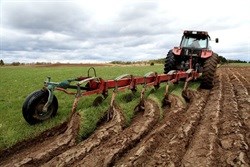






A black professional was recently quoted as saying something to the effect that "people don't seem to get it: nothing that can happen is worse than apartheid". On face value, this statement makes sense. But one has to be careful of taking that argument too far as it implies that the wrongs of the past should be rectified immediately, whatever it takes and whatever the consequences.
Looking back on land reform since 1994, from the viewpoint of many commercial farmers at least, the underlying message has been that the land must be redistributed even if it means the breakdown of a well-established farming industry. Then, once certain goals had been reached, could the focus switch to rebuilding and development. That makes for a paralysing, complex mix of redress, restitution and revenge for farmers to worry about.
Yet, despite the many hurdles and tribulations, commercial farming has survived. Commercial farmer numbers have fallen more as a result of natural attrition, led by economic realities and creeping old age, than as a result of government policies.
Many white commercial farmers, who still own and manage most of the land outside the former homelands, experience the land reform debate as a psychological war, with politicians varying the attack in typical ironfist/silk-glove style, making it hard for dedicated farmers to distinguish between bluff and genuine support. Does the government really want to take their farms, or is it mostly hot air to please rural voters?
This cat-and-mouse game has in 20 years done little more than move the land discussion from one in which one-third of commercial farming land was to have been quickly transferred, to the present ideas of a land ownership cap and equity for farm workers. During all that time, much money was spent, a lot fruitlessly, on emerging farmer projects, land claims and counterclaims.
Reasons for the general failure of the process are well known but one mistake that is hardly mentioned was the original notion that one could, with a snap of the fingers, without doing great socioeconomic damage, change land-use patterns that had evolved over a couple of centuries.
Black people had been kept out of mainstream commercial farming for a long time. Unfortunately, when it became their turn to bat, the government had very little institutional memory or practical knowledge of modern-day agriculture in SA. The result was that too much faith was placed on revolutionary politics as well as foreign consultants that had no idea of local conditions and how to approach them. It was, in any case, not politically correct to speak to experienced white commercial farmers or their technical advisers.
On the other hand, it has taken commercial farmers far too long to decide on what role to play in the process. The emphasis was more on shooting down projects and evading issues than tackling challenges and trying to devise win-win schemes.
For growth, the farm sector needs what every other economic sector thrives on: confidence in the future. Agriculture needs an operating climate in which local entrepreneurial farmers are prepared to risk investment in land, improvements, labour and production. That will allow them to generate money that could make effective land reform happen, independently of state control. Then, no laws will be needed to keep outsiders from owning land and there need be no debate about the pros and cons of megafarms, food security, or rural decay and ensuing poverty.
Confidence is the cheapest catalyst for agricultural development while falling land prices, driven by fear and uncertainty, are the surest route to stagnation.
The by now punch-drunk commercial farmers, aspiring new farmers and an apparently confused government should sit down again to map out a new road based on the economic realities of the future rather than the follies of the past.

For more than two decades, I-Net Bridge has been one of South Africa’s preferred electronic providers of innovative solutions, data of the highest calibre, reliable platforms and excellent supporting systems. Our products include workstations, web applications and data feeds packaged with in-depth news and powerful analytical tools empowering clients to make meaningful decisions.
We pride ourselves on our wide variety of in-house skills, encompassing multiple platforms and applications. These skills enable us to not only function as a first class facility, but also design, implement and support all our client needs at a level that confirms I-Net Bridge a leader in its field.
Go to: http://www.inet.co.za